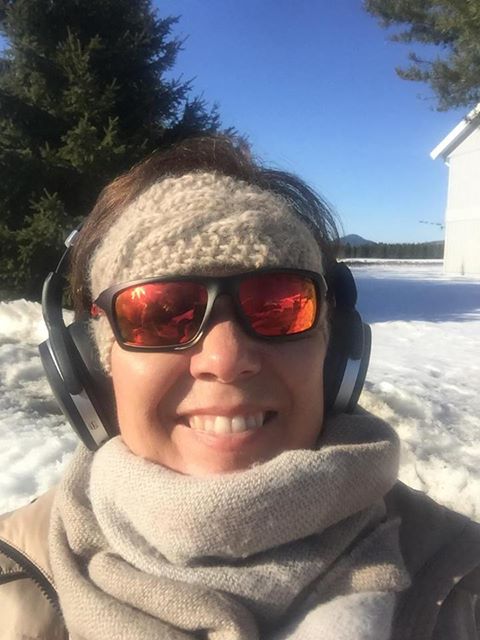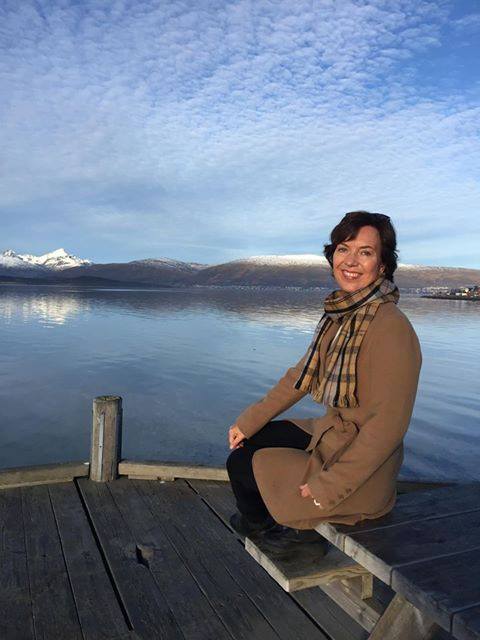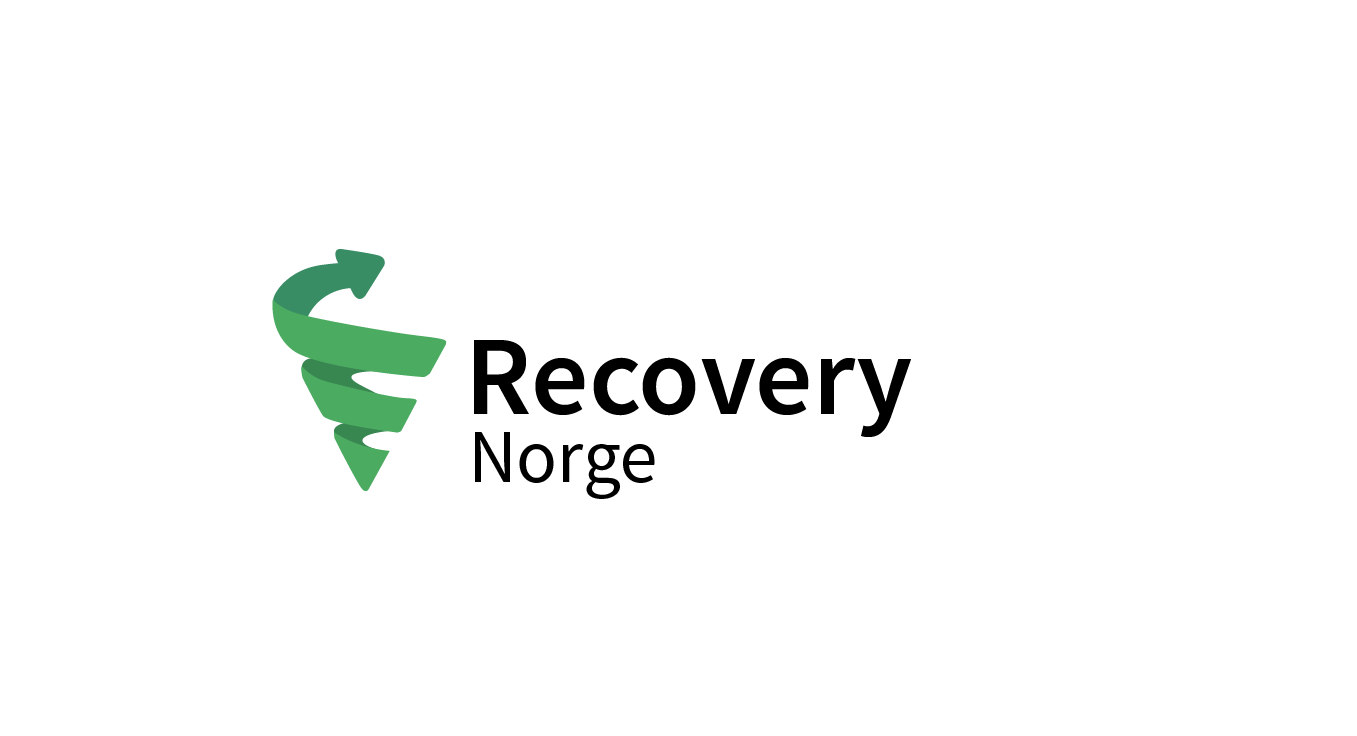Author: Anne Mari Romsaas Fredriksen
In November 2017, I got Q-fever during a holiday in Tenerife, and eventually I was diagnosed with Post Q-fever fatigue syndrome, which I consider to be similar to ME or chronic fatigue syndrome (CFS).
A host of symptoms
Q-fever is a tropical disease arising from infection with the bacterium Coxiella Burnetti. It is rare and is transmitted only from animals to people through aerosols or in direct contact with sick animals, but not between humans. The symptoms are flu-like with a fever and cough. 20% of those infected also get long-lasting fatigue.
I did not get diagnosed until April 2018, because I was too exhausted and sick to get to the hospital for assessment. I also took the flu vaccine when I came home from vacation, and at that time I was not aware that I was infected. I became acutely exhausted with cough and muscular pain for three days after vaccination, it was like the energy switch had been turned off. By December 2017 I was becoming increasingly exhausted.
In the period that followed, I was lying in a dark room with sunglasses and earplugs, with neuropathic and muscular pain, hot flashes, digestive problems, alcohol intolerance, experiencing changes in taste sensations, and ringing in my ears. Regarding neuropathic pain, I felt intense tingling/burning pain in my palms and under my feet. It was like lying on a bed of nails, I felt pain when I was touched (like getting small electric shock). I was totally exhausted, my muscles weak, I could not read, listen to the radio or operate mobile a phone or computer. I only managed to utter short sentences and could not look at anything that moved.
I was totally exhausted, my muscles weak. I had to move in with my mother to get the care I needed that winter and spring.
I had to move in with my mother to get the care I needed that winter and spring. I also had ongoing infections. Eating was actually pain-relieving, so I ate every hour almost 24 hours a day. My sleep quality was poor.

Similarities to PTSD
To continually lose a number of bodily and cognitive functions all felt very scary. To me, the result amounted to clear symptoms of post-traumatic stress disorder (PTSD) with over-/underactivation of the nervous system.
I did not get diagnosed with PTSD, but I have a course in trauma therapy from a national competence centre in Norway, and recognized the symptoms from my own training.
To lose most of the physiological and cognitive functions could, in my assessment and personal experience, be defined as a traumatic event (strong anxiety for own life or health) and give stress reactions similar to PTSD. I experienced stress reactions, especially those connected to over-activating the nervous system.
I experienced stress reactions, especially those connected to over-activating the nervous system.
The over-activation symptoms of PTSD are: Tension, hypersensitivity to sensory input, concentration difficulties, problems falling asleep or frequent awakenings.
Symptoms at under-activation: A sense of being outside oneself, joylessness, lack of interest for life. In addition, one can experience “flashbacks“, that’s revival of traumatic events, bothersome memories, nightmares and disturbed sleep. In my case, I could experience nightmares about being completely paralyzed and unable to communicate with anyone. I can still have the experience of waking up alone in a completely quiet room. But now it helps to use the techniques I’ve learned.
I also got tinnitus, extremely annoying, but it became much weaker and less troublesome as I became healthier and less sound sensitive. Today, it no longer bothers me, even if it is weakly present.
Back in full-time work
Today, 12 months later, I am back in full time work, with normal energy surplus for my everyday life. I have gradually increased my work responsibilities during the fall of 2018.
Recovery Norway has been a great inspiration and motivation for me in working with my recovery, both cognitively and physically. However, I only first become aware of the Recovery Norway website in June 2018. The various case stories from the members gave me back the necessary belief to be able to get well again!
Recovery Norway has been a great inspiration and motivation for me.
I am educated as a nurse and midwife, I am an educator, and I have a master in nutrition as well as various training/education in the field of mental health. I have used various cognitive and meta-cognitive techniques (designed to get more control over thoughts and feelings) and there is no doubt that cognitive techniques have been central in my recovery, especially trauma therapeutic techniques. To visualize “safe rooms”, to “cross out” every negative thought that pops up, do simple trauma-therapeutic mindfulness exercises, and not least to have a focus on the positive have been important.
Mindful knitting
I have also received incredible support from family and friends who also possess expertise. When I was at my lowest point, I was advised to try to think of something that I strongly wanted to do, and that I might be able to manage. For me, this became knitting. My mother started to make a pot holder, and I slowly managed to knit with a towel over my hands so I would not see that they moved.
Gradually, as I increased the knitting, I was able to focus more and more on my hands and the knitting. I believed in being able to do other activities, too, like eating with a knife and fork, to move around in the room, go for a walk, have contact with more people, etc., and gradually to take on new challenges.
I also want to mention that the medicine Sarotex (10 milligrams, low dose) had a good effect on neuropathic pain and sleep, and made me less sensitive to sounds, among other things.
Finally, an LP course
In September 2018, I signed up for a Lightning process course, and I had huge benefits from it. The reason I signed up, was that I had talked to a person in my family who previously suffered from ME, and had fully recovered after the course.
The techniques in the course gave me more stable energy
When I signed up, I was still bothered by fatigue, I had ringing in the ears, a lot of blisters in my mouth, and I thought complete healing would take too long a time. The techniques in the course gave me more stable energy and an inner confidence of recovery, which clearly helped me quickly take up work full time again. I could use the LP process along with the techniques I had already established.
After the course, the energy came back, and after a few weeks, both the ringing in the ears and the wounds in my mouth disappeared. I felt as if the stress levels in the body in a way had been normalized.

I now define myself as well, and I have an actively and good life in every way!
For background, here is an article about Post Q-fever fatigue syndrome:https://www.ncbi.nlm.nih.gov/pmc/articles/PMC4880326/…
